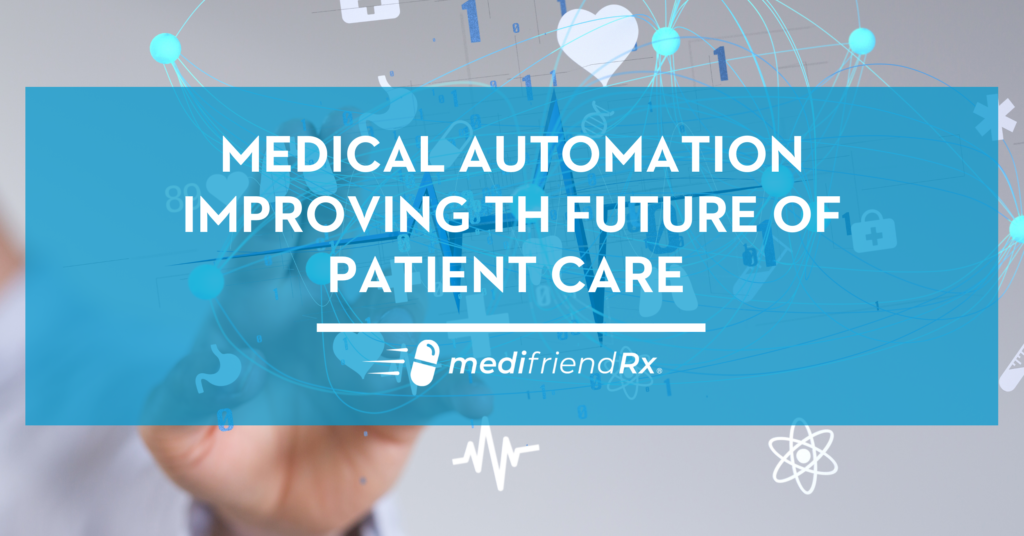In today’s healthcare environment there are many complex structures in place which stand in the way of patients receiving the best medical care possible. As technology advances, clinics and hospitals must adapt and integrate new systems that put them at the cutting edge of patient care. In order for healthcare institutions to remain competitive they must be willing to invest in and implement the most advanced technology.
Medical technology that makes processes more efficient, safer and convenient for the staff and patients are becoming evermore necessary.
What is Medical Automation?
Medical automation covers a wide array of systems, services, and technologies that work together to simplify elements of the therapeutic process, such as:
- Intake
- Scheduling
- Prescription Delivery
- Delicate Procedures
Software is becoming more and more efficient at performing fundamental AND specialized medical tasks, and are beginning to surpass human performance. Not only can they retain a massive amount of data, but they can also apply specific diagnoses based on previous cases nearly as well as an experienced human doctor can.
Prioritizing Patient Care
The quality of patient care needs to be the number one priority when designing a healthcare management plan. The idea that building care around patients and their quality of life achieve better, more lasting results and can cost less. When you build automated experiences to deal with personalized health concerns, it empowers health systems to do the right thing by their patients.
By implementing medical automation solutions, such as the medifriendRx® prescription kiosk, you will be making the patient’s life so much easier by giving them quick and easy access to their prescriptions and medication.
How Does Medical Automation Impact Patient Care?
When you’re looking to improve the patient experience with medical automation, it’s important to consider the entire patient journey from start to finish. From scheduling the appointment, to time spent in the office with the physician, to treatment once the patient leaves, are all crucial components that impact the quality of care.
Main applications for medical automation in the industry currently:
- Medical transportation robots.
- Robotic surgical assistants.
- Telepresence.
- Robotic prescription dispensing systems.
MedpageToday says that “For every hour of direct patient care activity, two hours are spent [by doctors] on typing, data entry, and paperwork.” More than half of the time the doctor spends in the exam room with the patient is spent on typing, data entry or dictation. That’s valuable time they are not interacting with the patient.
Learn more:
If you’re interested in learning more about how integrated point of care pharmacy solutions, like the medifriendRx® prescription kiosk, can improve patient care AND increase revenue, request a demo today.
